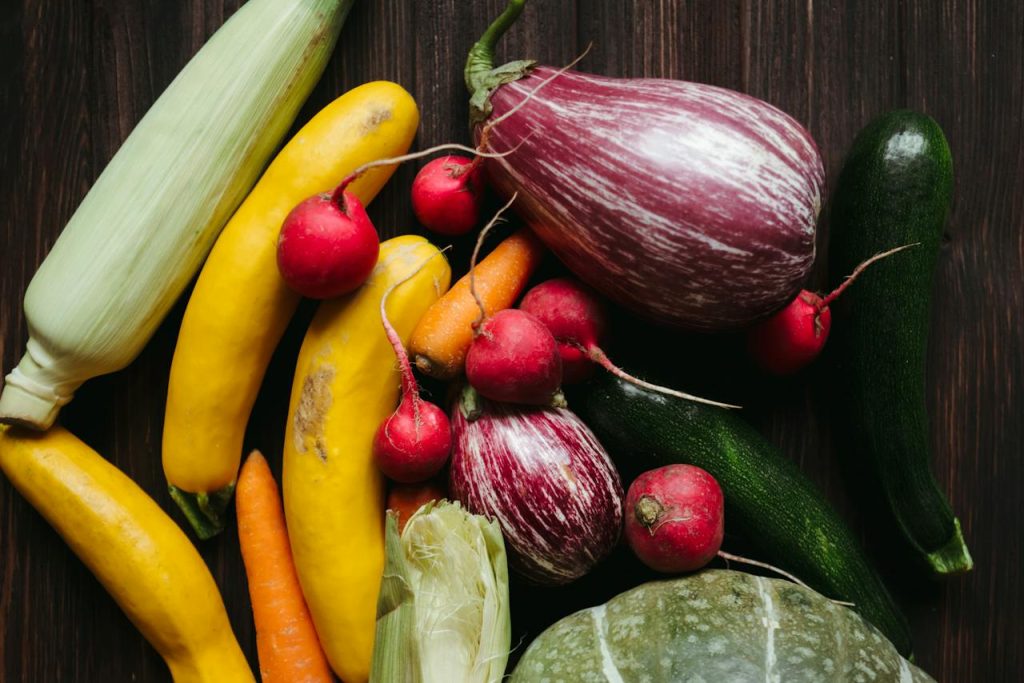Why is fiber good for your diet: Some types of fiber could profit your health, including your gut microbiome, blood sugar, and the partitions of your colon.
Fiber is one of the principle causes whole plant foods are good for you.
Growing proof shows that satisfactory fiber intake could profit your digestion and reduce your risk of chronic disease.
Many of these benefits are mediated by your gut microbiota — the thousands and thousands of bacteria that live in your digestive system.
However, not all fiber is created equal. Different types have completely different health results.
This article explains the evidence-based health benefits of fiber.
Table of Contents
What is fiber?

Put simply, dietary fiber is a non-digestible carbohydrate found in foods.
It’s break up into two broad classes primarily based on its water solubility:
- Soluble fiber: dissolves in water and might be metabolized by the “good” bacteria in the gut
- Insoluble fiber: doesn’t dissolve in water
Perhaps a extra useful way to categorize fiber is as fermentable versus non-fermentable, which refers as to if friendly gut bacteria can use it or not.
It’s important to keep in thoughts that there are numerous different types of fiber. Some of them have important health benefits, while others are mostly ineffective.
There is also a lot of overlap between soluble and insoluble fibers. Some insoluble fibers might be digested by the good bacteria in the gut, and most foods contain each soluble and insoluble fibers.
Health authorities recommend that males and ladies eat 38 and 25 grams of fiber per day, respectively.
SUMMARY
Non-digestible carbohydrates are collectively often called fiber. They are most frequently categorized as soluble or insoluble.
Fiber feeds “good” gut bacteria
The bacteria that live in the human body outnumber the body’s cells 10 to 1. Bacteria live on the skin, in the mouth, and in the nostril, but the nice majority live in the gut, primarily the large gut (1Trusted Source).
Five hundred to 1,000 completely different species of bacteria live in the gut, totaling about 38 trillion cells. These gut bacteria are also often called the gut flora (2Trusted Source, 3Trusted Source).
This just isn’t a nasty factor. In truth, there’s a mutually helpful relationship between you and some of the bacteria that live in your digestive system.
You present food, shelter, and a protected habitat for the bacteria. In return, they take care of some issues that the human body can not do by itself.
Of the numerous completely different sorts of bacteria, some are crucial for various aspects of your health, including weight, blood sugar control, immune operate, and even brain operate (4Trusted Source, 5Trusted Source, 6Trusted Source, 7Trusted Source, 8Trusted Source).
You could surprise what this has to do with fiber. Just like every other organism, bacteria have to eat to get energy to outlive and operate.
The problem is that almost all carbs, proteins, and fat are absorbed into the bloodstream before they make it to the large gut, leaving little for the gut flora.
This is the place fiber comes in. Human cells don’t have the enzymes to digest fiber, so it reaches the large gut relatively unchanged.
However, intestinal bacteria do have the enzymes to digest many of these fibers.
This is probably the most important motive that (some) dietary fibers are important for health. They feed the “good” bacteria in the gut, functioning as prebiotics (9Trusted Source).
In this way, they promote the growth of “good” gut bacteria, which may have various positive results on health (10Trusted Source).
The friendly bacteria produce nutrients for the body, including short-chain fatty acids such as acetate, propionate, and butyrate, of which butyrate seems to be probably the most important (11Trusted Source).
These short-chain fatty acids can feed the cells in the colon, resulting in reduced gut inflammation and improvements in digestive disorders such as irritable bowel syndrome, Crohn’s disease, and ulcerative colitis (12Trusted Source, 13Trusted Source, 14).
When the bacteria ferment the fiber, they also produce gases. This is why high fiber diets can cause flatulence and stomach discomfort in some people. These side results normally go away with time as your body adjusts.
SUMMARY
Consuming satisfactory amounts of soluble, fermentable fiber could be very important for optimum health as a result of it optimizes the operate of the friendly bacteria in your gut.
Some types of fiber will help you lose weight
Certain types of fiber will help you lose weight by reducing your urge for food.
In truth, some studies present that rising dietary fiber can cause weight loss by automatically reducing calorie intake (15Trusted Source, 16).
Fiber can take in water in the gut, slowing the absorption of nutrients and rising emotions of fullness (17Trusted Source).
However, this is determined by the kind of fiber. Some types don’t have any impact on weight, while certain soluble fibers can have a big impact (18Trusted Source, 19Trusted Source, 20Trusted Source, 21).
A good instance of an efficient fiber supplement for weight loss is glucomannan.
SUMMARY
Some types of fiber can cause weight loss by rising emotions of fullness, resulting in a reduced calorie intake.
Fiber can reduce blood sugar spikes after a high carb meal
High fiber foods are inclined to have a lower glycemic index than refined carb sources, which have been stripped of most of their fiber.
However, scientists imagine that solely high viscosity, soluble fibers have this property (22Trusted Source).
Including these viscous, soluble fibers in your carb-containing meals could cause smaller spikes in blood sugar (23Trusted Source).
This is important, particularly should you’re following a high carb diet. In this case, the fiber can reduce the probability of the carbs elevating your blood sugar to dangerous levels.
That said, when you have blood sugar points, you should contemplate reducing your carb intake — particularly your intake of low fiber, refined carbs such as white flour and added sugar.
SUMMARY
Foods that contain viscous fiber have a lower glycemic index and cause smaller spikes in blood sugar than foods which can be low in fiber.
Fiber can reduce cholesterol, but the impact isn’t enormous
Viscous, soluble fiber can also reduce your cholesterol levels.
However, the impact isn’t almost as spectacular as you may count on.
A assessment of 67 managed studies found that consuming 2–10 grams of soluble fiber per day reduced complete cholesterol by just one.7 mg/dl and LDL (dangerous) cholesterol by 2.2 mg/dl, on common (24Trusted Source).
But this also is determined by the viscosity of the fiber. Some studies have found spectacular reductions in cholesterol with increased fiber intake (25Trusted Source, 26Trusted Source).
Whether this has any significant results in the long time period is unknown, though many observational studies present that people who eat extra fiber have a lower risk of heart disease (27Trusted Source).
SUMMARY
Some types of fiber can reduce cholesterol levels. However, most studies present that the impact isn’t very large, on common.
What about fiber and constipation?
One of the principle benefits of rising fiber intake is reduced constipation.
Fiber is believed to assist take in water, increase the majority of stool, and pace up the motion of stool through the gut. However, the proof is pretty conflicting (28, 29Trusted Source).
Some studies present that rising fiber can improve signs of constipation, but different studies present that eradicating fiber improves constipation. The results depend upon the kind of fiber.
In one examine in 63 individuals with chronic constipation, happening a low fiber diet mounted their problem. The individuals who remained on a high fiber diet noticed no improvement (30Trusted Source).
In basic, fiber that will increase the water content material of your stool has a laxative impact, while fiber that provides to the dry mass of stool with out rising its water content material could have a constipating impact.
Soluble fibers that kind a gel in the digestive tract and are usually not fermented by gut bacteria are sometimes efficient. A good instance of a gel-forming fiber is psyllium (22Trusted Source).
Other types of fiber, such as sorbitol, have a laxative impact by drawing water into the colon. Prunes are a good supply of sorbitol (31Trusted Source, 32Trusted Source).
Choosing the fitting sort of fiber could assist your constipation, but taking the fallacious supplements can do the alternative.
For this motive, you should seek the advice of a healthcare skilled before taking fiber supplements for constipation.
SUMMARY
The laxative results of fiber differ. Some fibers reduce constipation, but others increase constipation. This seems to depend upon the person and the kind of fiber.
Fiber may reduce the risk of colorectal most cancers
Colorectal most cancers is the third main cause of most cancers deaths in the world (33Trusted Source).
Many studies have linked a high intake of fiber-rich foods with a reduced risk of colon most cancers (34Trusted Source).
However, whole, high fiber foods like fruits, vegetables, and whole grains contain various different healthy nutrients and antioxidants that will have an effect on most cancers risk.
Therefore, it’s difficult to isolate the effects of fiber from different factors in healthy, whole-food diets. To date, no strong proof proves that fiber has cancer-preventive results (35Trusted Source).
Yet, since fiber could assist keep the colon wall healthy, many scientists imagine that fiber performs an important role (36Trusted Source).
SUMMARY
Studies have related a high fiber intake with a reduced risk of colon most cancers. However, correlation doesn’t equal causation. To date, no studies have confirmed that fiber has direct benefits for most cancers prevention.
The bottom line (Why is fiber good for your diet)
Dietary fiber has various health benefits.
Not only does it feed your gut bacteria, but fermentable fiber also kinds short-chain fatty acids, which nourish your colon wall.
Additionally, viscous, soluble fiber could reduce your urge for food, lower your cholesterol levels, and lower the rise in blood sugar after high carb meals.
If you’re aiming for a healthy lifestyle, try to get a variety of fiber types from whole fruits, vegetables, and grains.
- Read more: Can I lose 10 pounds in one month?
- Read more: Is it bad to want to lose weight fast?
- Read more: 9 health benefits of vegetables legumes and beans
- Read more: 6 Best candy for weight loss – Science based
Pros of Fiber in Your Diet:
- Gut’s Cheerful Janitor:
- Pro: Fiber is like the happy janitor for your gut, sweeping out all the digestive gunk. It’s the broomstick of your belly, ensuring things run smoothly. No more digestive drama; just a tidy gut!
- Con: But don’t expect it to mop up your embarrassing moments. Fiber is a gut janitor, not a memory eraser for awkward incidents.
- Fullness Bodyguard:
- Pro: Fiber is the bodyguard of fullness, creating a fortress against hunger invaders. It’s like having a bouncer for your stomach, telling cravings to wait outside. No VIP access for hunger pangs!
- Con: However, it won’t save you from the temptation of office snacks. Fiber is a fullness bodyguard, not a snack security guard.
- Heart’s Best Friend:
- Pro: Your heart high-fives fiber. It’s the loyal sidekick, lowering cholesterol like a superhero cape. Cholesterol, the villain; fiber, the hero!
- Con: Yet, it won’t turn your heart into a rock star. Fiber is a heart’s buddy, not a concert ticket for cardiovascular fame.
- Weight-Loss Whiz:
- Pro: Fiber is the weight-loss wizard. It’s like a magic wand turning your plate into a satisfying feast without the calorie mayhem. Weight-loss, the magical journey!
- Con: But don’t expect it to make broccoli taste like pizza. Fiber is a weight-loss magician, not a flavor illusionist.
- Digestive Symphony Conductor:
- Pro: Fiber conducts the digestive symphony, ensuring all instruments play in harmony. It’s like the maestro of your metabolism, preventing chaos in the digestive orchestra. No digestive cacophony; just a smooth symphony!
- Con: However, it won’t give you a standing ovation after every meal. Fiber is a conductor, not an audience clapper.
Cons of Fiber in Your Diet:
- Gas Comedy Show:
- Pro: Fiber can be a stand-up comedian for your digestive system, producing gas that could rival a comedy club audience. Digestive humor, the unexpected punchline!
- Con: But don’t expect it to land you a spot on a late-night talk show. Fiber is a gas comedian, not a talent scout for digestive jokes.
- Toilet Time Dilemma:
- Pro: Fiber ensures a regular bathroom schedule. It’s like a punctual alarm clock for your digestive system, making sure things move on time. No unexpected bathroom surprises!
- Con: Yet, it won’t grant you a VIP pass to skip the line. Fiber is a bathroom timekeeper, not a skip-the-line ticket holder.
- Chewy Challenge:
- Pro: High-fiber foods might give your jaw a workout. It’s like a chewy adventure for your teeth, turning each bite into a munching marathon. Chew, the unexpected gym for your mouth!
- Con: But don’t expect it to replace your regular workout routine. Fiber is a chewy challenge, not a gym substitute.
- Texture Detective:
- Pro: Fiber adds texture to your meals, turning them into a culinary sensation. It’s like the Sherlock Holmes of your plate, solving the mystery of blandness. Texture, the unsung hero of taste!
- Con: However, it won’t uncover hidden treasure in your fridge. Fiber is a texture detective, not a food archaeologist.
- Craving Saboteur:
- Pro: Fiber can be a cravings saboteur, curbing your desire for unhealthy snacks. It’s like the undercover agent against the cookie conspiracy. Cravings, the stealthy enemies!
- Con: But don’t expect it to resist the charm of chocolate forever. Fiber is a cravings saboteur, not a permanent dessert banisher.
People also ask
What are the benefits of eating fiber?

Eating fiber is like giving your body a superhero squad – it’s got benefits that make you feel invincible! It’s not just food; it’s your body’s Avengers. Fiber plays janitor in your belly, sweeping away digestive drama. The unsung hero in a digestive cape! It’s the bodyguard of fullness, telling hunger to wait outside the stomach club. No VIP access for cravings! Plus, it’s heart’s best buddy, lowering cholesterol like a superhero. Cholesterol, the villain; fiber, the hero! Weight-loss wizard, digestive symphony conductor, and cravings saboteur – fiber’s got your back. So, eat up, and let the fiber Avengers assemble in your plate!
Why do we need fibre in our diet?

We need fiber in our diet because it’s like the unsung hero in our food parade, doing all the behind-the-scenes magic. Fiber, the backstage superstar! It keeps our digestion in check, making sure things move smoothly – it’s the traffic controller for your belly. No digestive traffic jams! Fiber also plays the role of the hunger police, telling your stomach, “Hold up, we’re not done here!” Stomach, the rebellious teenager; fiber, the strict parent! Plus, it’s the heart’s loyal sidekick, lowering cholesterol like a superhero cape. Cholesterol, the villain; fiber, the caped crusader! So, let fiber be the superhero in your diet story, fighting for a happy, healthy ending!
Why is fiber important?

Fiber is as essential as morning coffee – it keeps things moving and prevents chaos! Fiber, the real MVP of your digestive system! It’s like the superhero janitor, sweeping away all the leftovers and ensuring a clean exit. Digestive drama, no more starring roles! Fiber also doubles as the bodyguard of your stomach, telling hunger to take a number. Stomach, the pushy paparazzo; fiber, the bouncer! Plus, it’s the peacekeeper for your heart, lowering cholesterol and maintaining harmony. Cholesterol, the troublemaker; fiber, the diplomat! So, why is fiber important? It’s the unsung hero in your diet tale, keeping the plot smooth and the characters happy!
